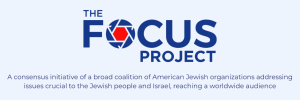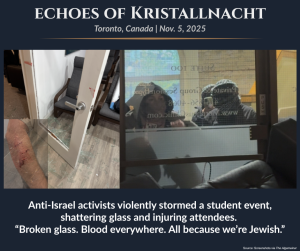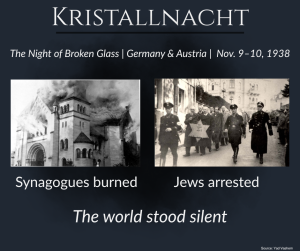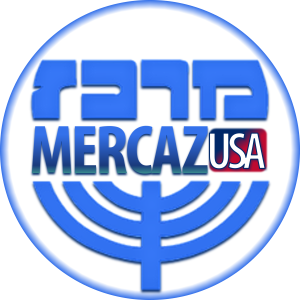
November 11, 2025
BACKGROUND – TALKING POINTS – ACTIONS TO CONSIDER – STORIES MAKING NEWS
![]()

Hate is being given a free pass far too often. Once confined to the margins, hatred now finds acceptance in public life. For Jews, that normalization has already turned deadly and the rising tide of violent rhetoric – from the far left to the far right – endangers everyone. In New York, new leadership may determine whether silence or moral clarity will prevail.
NYC: Mamdani’s Victory Raises Fears
The election of Zohran Mamdani as NYC’s next mayor has left many New Yorkers anxious about what his leadership will mean for their safety. New York City is home to 1.3 million Jews. The Jewish FDNY commissioner immediately resigned in response and many Jews are now considering relocating. The ADL recently reported on “brazen and intensified” incidents against Jews in NYC this year. The leading Jewish civil rights organization launched the Mamdani Monitor: Holding the New Administration Accountable.
Mamdani’s activist background, inflammatory rhetoric and extremist supporters raise concerns. He founded a Students for Justice in Palestine college chapter and refused to condemn the violent slogan, “Globalize the Intifada.” His wife publicly praised a Hamas-affiliated propagandist and has expressed hostility toward the U.S. and Israel.
The Movement Behind the Rhetoric: DSA’s Radical Turn
The ideological current powering Mamdani’s campaign reflects a growing international movement that merges political radicalism – from the left and the right – with religious extremism. Mamdani is backed by the Democratic Socialists of America. The political organization includes communists and socialists.
DSA uses Soviet-era Marxist language to support its anti-Western activism. In a recent statement, the group condemned the “archaic and undemocratic U.S. Senate that needs to be left to the dustbin of history.” The organization also denounced Democrats as “sell-outs.”
The Marxist DSA was founded in 1982 and supported Israel. Its founder condemned the 1975 UN vote falsely calling Zionism racism. By 2017, new members had pushed the group sharply left, and now requires political candidates to support Israel’s destruction if they seek an endorsement.
DSA is pressuring Mamdani to “withdraw city funds from banks that do business in Israel, dismantle the NYC-Israel Economic Council and arrest any Israeli leader.” Mamdani already pledged to shut down the partnership between Cornell and Israel’s Technion university on the city’s Roosevelt Island.
Mamdani’s campaign also drew support from activists and organizations dedicated to Israel’s destruction, including activist Linda Sarsour and the Council on American-Islamic Relations. CAIR was an unindicted co-conspirator in the 2007 Holy Land Foundation Hamas terrorism-financing case.
At a recent CAIR conference, Sarsour claimed that “the darkness has just begun” for Muslims in America and that “some of us will be sacrificed for the cause.” Her remarks were condemned by Palestinian American peace activist Ahmed Alkhatib. He warned that support for Hamas and open hostility to the U.S. “have become mainstream views” within parts of the so-called pro-Palestine movement.
From Words to Violence: ‘I want to kill and enslave Jews’
Harassment, vandalism and attacks against Jews have continued to rise sharply, mirroring the growing normalization of violent rhetoric. Two 19-year-olds from wealthy NJ families were recently arrested for plotting ISIS attacks. Milo Sedarat wanted to “line up 500 Jews and execute them in front of their wives and family. Then take all their wives as slaves. Imma have like 10 yahood slave girls inshallah.” Yahood is Arabic for Jew and inshallah means God willing.

Nov. 5 Campus Attacks: From Protest to Violence
Students for Justice in Palestine activists at the Toronto Metropolitan Univ. violently stormed an event featuring an Israeli speaker. Students Supporting Israel campus chapters routinely host Israeli veterans to discuss their experiences fighting Hamas terrorists. Activists used a drill bit to shatter a glass door, causing cuts and abrasions on multiple victims. SSI released a statement: “Broken glass. Blood everywhere. All because we’re Jewish – and tried to open dialogue.”
On the same day, about 40 anti-Israel activists disrupted a similar SSI event at Louisiana St. Univ. The students barged in banging pots and pans, shouting for Israel’s destruction. One protester boasted that they “greatly outnumbered the Zionist students.” About 1,000 miles away, the Univ. of Maryland student government unanimously passed a resolution calling to ban former Israeli soldiers from speaking on campus because their presence is “harmful to students and the community.”
Dalia Ziada – a liberal Egyptian Muslim – who works for a U.S. organization that studies anti-Jewish hate, recently posted: “Anti-Zionism is used as a politically correct cover for antisemitism, and antisemitism is the platform for anti-Americanism.”
Remembering Kristallnacht: When Words Became Violence
Eighty-six years ago, Nazi rhetoric turned into action. Long before the night of shattered glass – Kristallnacht – of Nov. 9, 1938, German Jews had already been pushed to society’s margins through propaganda, boycotts and laws that stripped away their rights and livelihoods.
State-run newspapers spread conspiracy theories blaming Jews for Germany’s defeat in World War I and for the country’s economic collapse. Schoolbooks and radio programs taught children to see Jews as subhuman. Businesses were marked, professional licenses revoked and citizens were discouraged from buying goods at Jewish-owned stores.
In a single night, Nazi forces, Hitler Youth and civilian mobs burned 1,400 synagogues, destroyed 7,000 Jewish-owned businesses and arrested 30,000 Jewish men who were sent to concentration camps. German authorities stood by as mobs looted businesses, torched synagogues and murdered nearly 100 Jews. The “Night of Broken Glass” shattered not only windows – the coordinated attacks began to shatter Jewish life across Europe.
Kristallnacht Commemoration Hijacked in Norway
Norway’s prime minister attended a recent Kristallnacht memorial event organized by anti-Israel organizations rather than a commemoration organized by the Oslo Jewish community. “I cannot recall a European leader engaging in Holocaust denigration like this,” stated Dani Dayan, chair of Israel’s Yad Vashem Holocaust Museum. “He misused the anniversary of the Pogrom to partner with those who seek to leave the Jewish people stateless and defenseless again.”
Eighty-six years after Kristallnacht, its lesson still stands: when societies tolerate propaganda and excuse hate – it never stops with just words.

![]()

![]()

Each of us can help strengthen community safety, civic responsibility and the shared values that make America strong.
![]()

Stories Impacting American Jews
Stories Impacting the U.S. and Israel
Stories from Around the World
Stay Informed | Speak Up | Take Action
Want to Read More of Our Talking Points? Did you miss a recent edition of The Focus Project? No need to search your inbox. Our most recently published editions are available on our website.
![]()

This content is developed by The Focus Project in partnership with MERCAZ USA. The Focus Project distributes weekly news and talking points on timely issues concerning Israel and the Jewish people, including antisemitism, anti-Zionism and the delegitimization of Israel. It represents a consensus view across a spectrum of major American Jewish organizations. MERCAZ USA recognizes and respects the diversity of views on these issues among its readers and the community at large.